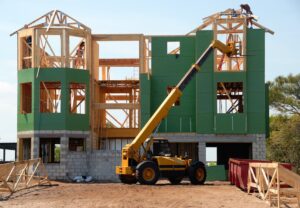Predicting Residential Real Estate Trends

Current Residential Real Estate Market Trends
November 27, 2023
Impact of Economic Factors on Residential Real Estate
November 27, 2023
A Glimpse into Tomorrow: Predicting Residential Real Estate Trends in 2023
The residential real estate landscape is an ever-evolving tapestry, influenced by economic shifts, societal changes, and a myriad of factors. As we stand on the cusp of a new year, it’s time to peer into the crystal ball and explore the potential trends that could shape the residential real estate market in 2023.
1. Technology Continues to Redefine the Homebuying Experience
In 2023, technology expects to take on an even more critical role in homebuying. Virtual reality (VR) and augmented reality (AR) technologies will likely become commonplace, offering prospective buyers immersive virtual tours of properties from the comfort of their homes. Integrating artificial intelligence (AI) may streamline property searches, providing more accurate and personalized recommendations.
Belwood Agent, a cutting-edge real estate app, is poised to be at the forefront of this technological wave. Whether you’re an iOS or Android user, the app offers a seamless experience. Download the Belwood Agent app for iOS or Android.
2. Shifts in Urban and Suburban Dynamics
The allure of urban living has long been a driving force in the real estate market, but recent years have witnessed a shift toward suburban and rural areas. This trend will likely continue into 2023, fueled by the rise of remote work and a growing emphasis on a more balanced lifestyle. Homebuyers are increasingly seeking more significant properties with dedicated home office spaces, and suburbs are becoming hotspots for those searching for tranquillity without sacrificing connectivity.
3. Sustainability Takes Center Stage
The increasing awareness of environmental issues is influencing homebuyers’ choices. In 2023, we can anticipate a surge in demand for sustainable and eco-friendly homes. Features such as solar panels, energy-efficient appliances, and eco-conscious designs sets to become significant selling points. Real estate developers are likely to respond by incorporating green building practices and environmentally friendly technologies into new constructions.
4. Flexible Living Spaces in the Post-Pandemic Era
The COVID-19 pandemic has forever altered the way we view and utilize our living spaces. In the coming year, the trend of flexible living spaces is expected to gain traction. Homebuyers are likely to prioritize properties that offer versatile rooms suitable for both work and leisure. The delineation between home and office spaces will continue to blur, emphasizing the importance of adaptable living environments.
5. Affordability and Market Dynamics
Affordability has been a consistent concern in the real estate market, and 2023 may see further efforts to address this issue. Cities experiencing housing shortages may witness increased initiatives to boost housing supply and make homeownership more accessible. Government policies and incentives will play a crucial role in shaping the market, impacting everything from mortgage rates to property values.
6. The Rise of Co-Living and Co-Working Spaces
As societal norms continue to evolve, so do our expectations of communal living and working spaces. Co-living arrangements, where individuals or families share housing, and co-working spaces within residential communities are anticipated to gain popularity in 2023. This trend reflects a growing desire for community and collaboration, even within the confines of one’s living space.
Navigating the Future of Residential Real Estate
In conclusion, 2023 holds the promise of a dynamic and transformative year for the residential real estate market. Technology, sustainability, flexible living, and affordability are set to be the guiding stars, shaping the choices of homebuyers and the strategies of real estate developers alike. As we venture into this new era, staying informed about these predictions will be key for those looking to navigate the ever-changing landscape of residential real estate.
